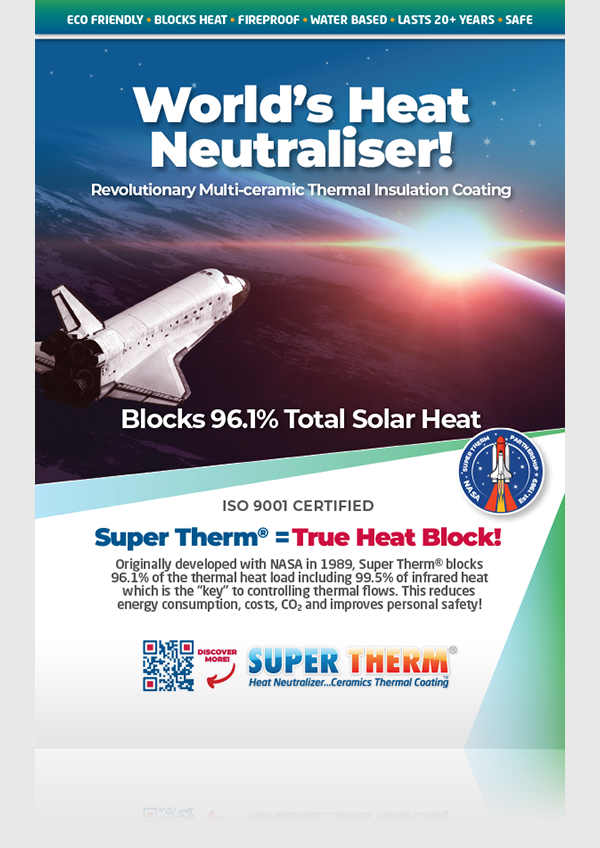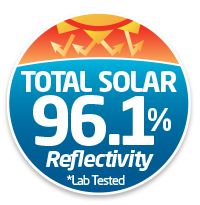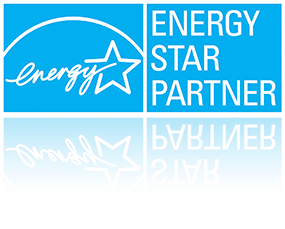Solar Reflective Paints and Insulation Coatings Marketing Fluff
Here’s a straight-talking, side-by-side breakdown of marketing fluff versus reality – especially in the insulation coatings and reflective paints space where pseudoscience gets peddled as innovation. We’ve stripped it down to what sounds impressive but doesn’t translate to real-world performance, versus what actually matters on the project site, under the sun, or during a heatwave.
| Marketing Fluff | What It Sounds Like | Reality Check | What Actually Matters |
| “Nano Ceramic Particles” | Ultra-fine particles = ultra performance | Sounds cool, but without field testing, particle size means nothing if the coating doesn’t block or emit heat across the entire solar spectrum from 250-2500 nm | Actual thermal resistance, emissivity, reflectivity, diffusivity and proven lab + field results made public |
| “K-value of 0.012 W/m·K” | Lower K = better insulation | Misleading when its only valid at 23°C in lab conditions and relies on thickness. Doesn’t account for solar radiation or heat load in summer and diffusivity | Does the coating block radiation, delay heat transfer, and maintain interior comfort under solar load? |
| “PDRC” (Passive Daytime Radiative Cooling) | Coating radiates heat into space | Sounds futuristic, but only works well in dry, clear-sky desert conditions. Can fail in humidity, cloud, or dust and relies mainly on light as the infrared heat on the planet is so low and the Kármán line is 100 km away any radiant heat won’t escape | Thermal diffusivity, emissivity, real solar reflectance, and how much it reduces interior temperatures on real word testing, not theoretical software and assumptions |
| “97% Reflectivity” | Almost no heat enters the building! | Only applies to UV/visible range, not full solar spectrum. Still absorbs infrared, which carries 53% of solar heat | Blocking IR is key. Look for coatings tested to ASTM E1269/E1461 for real heat load performance |
| “Whitest White Paint Ever” | Reflects more sun than anything else | Sure, it reflects, but doesn’t block heat. Can re-radiate it or let it slowly conduct in | Blocking + emitting heat > reflecting it. You need heat rejection, not just brightness and only works when clean with short duration |
| “Space-Grade Technology” | NASA uses it, so it must be elite | A common name-drop. Space tech doesn’t always scale to roofs or buildings. Verify if it was used or just inspired | Who validated it? Where was it used? What are the outcomes? Note the origin story |
| “Thermal Break” | Stops heat cold | Vague and overused. May refer to insulation, may refer to a reflective barrier. Rarely tested properly | Confirm R-value, U-value, or thermal resistance across real assemblies including thermal diffusivity |
| “Fireproof & Insulative in One” | Blocks fire + heat simultaneously | Fire resistance often comes from fillers or intumescent additives that reduce insulation performance | Check if it has passed AS1530.1, and whether it maintains insulation after heat exposure |
| “Energy Savings Up to 88%” | Huge drop in energy use! | Based on cherry-picked scenarios. Often not replicable. Doesn’t include building type or climate | Field-tested savings with monitoring and consistent metrics (kWh saved, temp delta) |
| “Emissivity 0.94+” | Great at shedding heat | Good stat, but if it still absorbs the heat, you’re just re-radiating something you didn’t block | You want high emissivity + IR rejection—both. Otherwise it’s just a glowing hot surface |
| “Air Bubble Insulation Coating” | Traps air like a thermos | Total myth. Air inside a coating heats up quickly and transfers heat by conduction | Air as an insulator only works when it’s trapped in a sealed cavity, not in paint |
| “Cool Touch Technology” | Roof feels cooler to the touch | May not mean much for thermal transmittance. Surface coolness ≠ interior comfort | Ask: what’s the interior temp reduction under full sun? Does it reduce HVAC loads? |
| “Only 1mm needed for full effect” | Thin but powerful | Sounds efficient, but without understanding diffusivity, it’s just a thickness race. Insulation is 3 inches thick and still lets conductive heat flow | What is the thermal diffusivity and what happens in 38–45°C ambient heat + sun exposure? |
| “Invisible Insulation” | Microns-thin and transparent | Total snake oil unless independently tested and verified | Real heat block coatings show temp delta between substrate before and after. Not visual magic |
| “Smart Coating” | Adapts to heat conditions | Ambiguous and unquantifiable. Often a rebrand of basic polymer physics | “Smart” = market-speak. Ask for ISO, ASTM, NCC, or Passivhaus-aligned performance data |
| “Dynamic Thermal Regulation” | Changes performance with seasons | Unclear. May mean directional emittance or color shifting. Often doesn’t scale commercially and expensive | A single product that blocks heat year-round (e.g. Super Therm®) is more valuable |
| “High SRI (Solar Reflectance Index)” | Scientifically cool roof | SRI combines reflectance + emissivity It’s a proxy, not a performance guarantee. Falls apart under high solar load or real-world heat exposure and only takes outside reading, not heat transferred | Use actual surface temp tests under peak solar gain. SRI means nothing if the coating still gets hot and conducts heat inside. Good SRI could still mean high heat transfer. Only tested for 3 years – how durable? |
| “White = Coolest Colour” | Just paint it white and it’s fine | Reflects light, sure. But most whites still absorb infrared, which is 53% of the sun’s heat. White ≠ insulation | It’s about IR blocking and diffusivity, not just visible reflectance. A high IR-blocking ceramic beats a plain white paint every time. Only works when new, shiny and clean and struggles with durability |
| “Galvanised = Shiny = Cool” | Looks reflective, must stay cool | Shiny metal reflects some light, but it also stores heat like a battery with very low emissivity. Can spike to 65–80°C in full sun | Metal gets hot fast unless coated with thermal blockers. Surface reflectance ≠ thermal protection. Galvanised roofs often create heat load nightmares |
| Core Metrics That Do Matter | |
| Metric / Test | What It Proves |
| Thermal Diffusivity (mm²/s) | How fast heat transfers through the material – low is good on metal |
| ASTM E1269 / E1461-92 | Shows thermal conductivity and heat capacity – key for IR blocking |
| Surface Temperature Delta (°C) | Real-world drop in temp, e.g. 6°C cooler inside under sun load over 40°C ambient |
| U-Value (W/m²·K) | Overall system transmittance – how well the wall/roof resists heat flow |
| Cool Roof Rating (CRRC, ASTM C1549) | Verified solar reflectance and emissivity ratings |
| Field Trials (Monitored temp / kWh) | Proof of energy savings over time in real buildings |
| AS/NZS 4859.1 Compliance | Confirms insulation performance per Australian code |
| AS 1530.3 / ISO 5660 | Fire resistance and non-combustibility checks |
| Moisture permeability / condensation control | Tells you if it causes internal sweating, mould, or rot |









